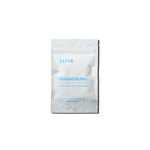You might have seen headlines recently claiming that taking paracetamol during pregnancy could cause autism. This debate hit the spotlight again when Donald Trump weighed in — loudly, as always — leaving many people worried and many scientists scratching their heads.
Let’s be clear from the start: there is no solid evidence that paracetamol causes autism. None. What we’re seeing here is politics and panic colliding with science.
Why the fuss?
Paracetamol (acetaminophen in the U.S.) is one of the most common over-the-counter medications taken during pregnancy. A handful of observational studies have found associations between its use in pregnancy and autism or ADHD, but associations are not proof of causation. It’s a classic case of correlation not equalling causation.
In fact, one of the largest and most rigorous studies to date, involving over 2.4 million children, found that when you control for genetic and family factors, the link between paracetamol and autism all but disappears (JAMA, 2024).
Health bodies like the WHO, the British Maternal and Fetal Medicine Society, and the FDA all agree: there is no conclusive evidence that paracetamol in pregnancy causes autism.
So what’s actually going on?
The reality is that many of these studies are limited by things like recall bias, confounding factors (like underlying illness or fever during pregnancy), and inconsistent reporting. Researchers themselves are cautious about their findings and call for more high-quality studies before drawing conclusions.
Trump, however, has a habit of skipping the “caution” part. Just like with bleach and Covid, he jumped on early data, spun it into a headline, and left experts cleaning up the mess.
What does this mean for you?
-
Don’t panic. The science does not support the claim that paracetamol causes autism.
-
Use wisely. As always, paracetamol should only be used when needed, at the lowest effective dose, and ideally under the guidance of your midwife, obstetrician, or pharmacist.
-
Stick with the facts. Health authorities worldwide still recommend paracetamol as the safest first-line option in pregnancy compared to alternatives like NSAIDs, which are known to carry higher risks.
The bottom line
Despite Trump’s headlines, the evidence does not support a causal link between paracetamol in pregnancy and autism. Researchers will continue to study the question, but for now, medical guidelines remain unchanged.
Science is complicated — but it’s not political theatre. And until the evidence says otherwise, paracetamol remains the safest choice for pain and fever in pregnancy.
References
-
FDA. (2025) FDA announces updates to acetaminophen labeling regarding pregnancy. U.S. Food and Drug Administration.
-
JAMA Network. (2024) Acetaminophen use in pregnancy and risk of autism and ADHD: Swedish cohort study. JAMA.
-
Liew, Z. (2023) Four essential questions on acetaminophen and pregnancy. Yale School of Public Health.
-
Mount Sinai Health System. (2025) Paracetamol use during pregnancy and neurodevelopmental outcomes: A systematic review using the Navigation Guide.
-
Nature. (2023) Debate on acetaminophen and autism risk. Nature Medicine.
-
PMC. (2023) Use of paracetamol in pregnancy: Current recommendations. PubMed Central.
-
WHO. (2024) Guidance on medication use during pregnancy. World Health Organization.
-
Women’s Reproductive Health Review (WRH). (2025) Acetaminophen and neurodevelopment: Evidence review.










